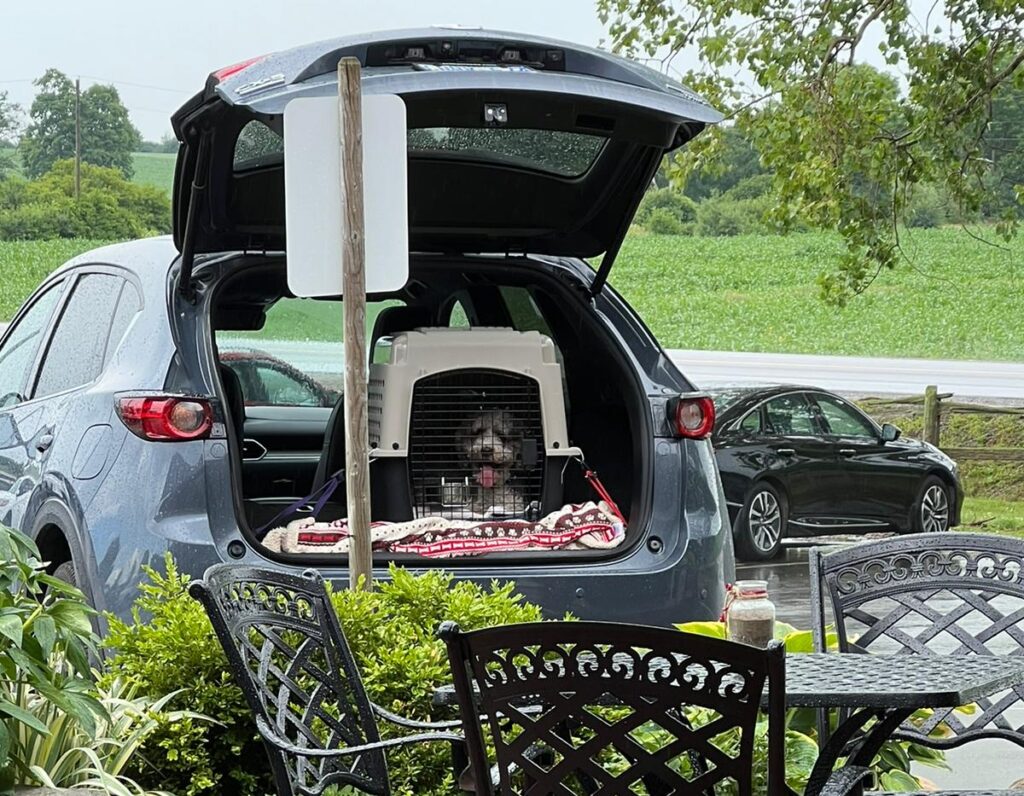
Spatial socialization, or exposure to spaces and environments, occurs in tandem with primordial socialization because your new dog is not only adjusting to you but also to the spaces in which they live. For example:
The dog’s new home or apartment
The dog’s new crate
The backyard
The garage
The condo building
The neighborhood
Other examples that we don’t realize also create a change of environment for a dog:
Having construction workers at the house
Entertaining guests
Us leaving the house
These all count as spatial socialization for dogs because the environment is different with new people around or with us gone. When we are in foundations with a dog and we are mindful about interactions with the outside world, we have dogs contained while taking in the experience of the change of environment crated by the visitors.
With a beginning of primordial socialization, we can expand to different spaces and widen our dog’s spatial socialization. We check out different places without engaging with others or asking our dog to perform in these spaces. For example:
Hanging out with our dog on a porch or balcony
Taking our dog on car rides
Taking our dog to our training and exercise spaces
Visiting new places
Because being in a new place can cause dogs to regress, we allow our dogs to adjust to that environment change. Seeing things from a distance while safely crated prepares the dog to eventually adjust to new environments more readily.